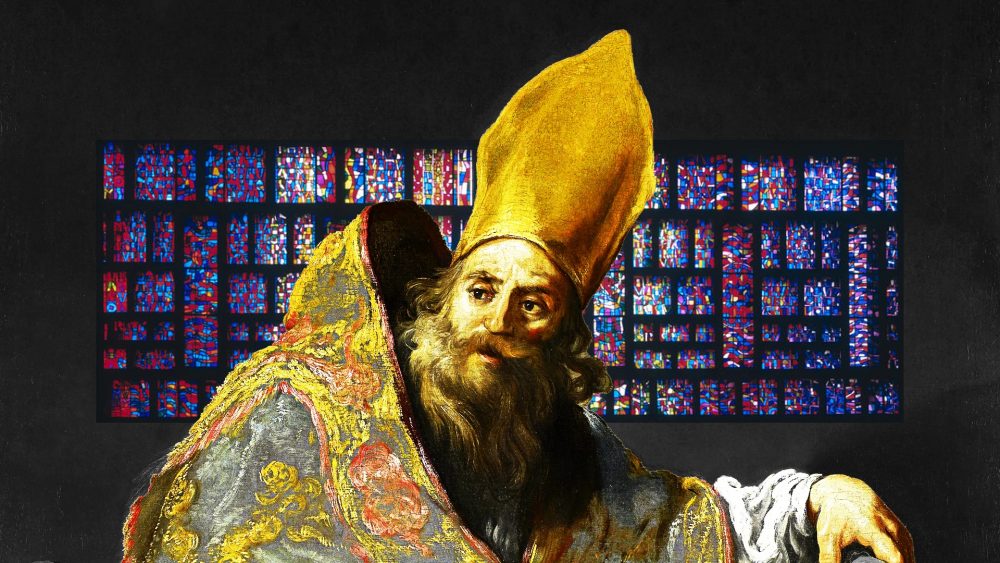Rev. José Mario O. Mandía
jmom.honlam.org
We have discussed two Latin Bishops so far: Hilary of Poitiers and Eusebius of Vercelli. Today we take up a third one: Saint Ambrose of Milan. He was born around 340 A.D. to a Christian family which included some Christian martyrs and high government officials. His father was prefect of Gaul and his authority covered areas of present-day France, Britain, Spain and Morocco. Upon his death in 354, the family moved to Rome.
His mother gave attention to both the civil career and religious formation of Ambrose and his brother. With regard to the civil career, he studied rhetoric and jurisprudence. As for the religious formation, his mother could count on the help of her daughter Marcellina, who taught Ambrose in word and deed. Marcellina was ten years older than Ambrose.
“His progress in secular knowledge kept equal pace with his growth in piety. It was of extreme advantage to himself and to the Church that he acquired a thorough mastery of the Greek language and literature, the lack of which is so painfully apparent in the intellectual equipment of St Augustine and, in the succeeding age, of the great St Leo. In all probability the Greek Schism would not have taken place had East and West continued to converse as intimately as did St Ambrose and St Basil” (James Loughlin. “St Ambrose.” The Catholic Encyclopedia. http://www.newadvent.org/cathen/01383c.htm).
He became such an outstanding lawyer that in 370, he was made governor of the Provinces of Emilia and Liguria, with his headquarters in Milan. At that time, the struggle between Catholics and Arians was raging. Auxentius, the bishop of Milan at the time, was on the side of the Arians. But he died in 374, and so the people had to choose his successor.
“Ambrose, concerned for the peace of the city, personally offered to supervise the election of a new bishop. The eloquence with which he handled the situation had an unexpected effect. Both sides respected him – Catholics for his faith and Arians for his honor. As a result, the crowd began chanting ‘Ambrose for bishop!’ Frightened, Ambrose fled. He argued that he had no theological training and had not even been baptized. However, when Emperor Gratian approved his appointment, Ambrose reluctantly agreed. He was baptized, ordained as a priest, and then consecrated a bishop” (https://mycatholic.life/saints/saints-of-the-liturgical-year/7-december-saint-ambrose-bishop-and-doctor-memorial/).
The first thing he did as bishop was to rid himself of his worldly goods. He gave his personal property to the poor and his estate to the Church, without forgetting to provide for his beloved sister. His brother Satyrus helped him take care of his temporal duties so that he could concentrate on his duties as bishop.
With regard to his doctrinal formation, his mastery of Greek, Latin, and the classics made it easy for him to master the sacred sciences.
“In order to supply the lack of an early theological training, he devoted himself assiduously to the study of Scripture and the Fathers, with a marked preference for Origen and St Basil, traces of whose influence are repeatedly met with in his works. With a genius truly Roman, he, like Cicero, Virgil, and other classical authors, contented himself with thoroughly digesting and casting into a Latin mold the best fruits of Greek thought. His studies were of an eminently practical nature; he learned that he might teach.
“‘He was one of those,’ says St Augustine, ‘who speak the truth, and speak it well, judiciously, pointedly, and with beauty and power of expression’ (Christian Doctrine IV.21)” (James Loughlin. “St Ambrose.” The Catholic Encyclopedia. http://www.newadvent.org/cathen/01383c.htm).
The influence of Origen was obvious in his way of reading Scriptures (cf. Church Fathers 16). “His approach to the Scriptures was unique in that he often read it silently, reflecting upon the meaning in his heart. At that time, Scripture was normally read aloud. This practice of interiorly reading Scripture is known today as lectio divina and has become the standard method of praying with the Scriptures. This interior reading of Scripture, coupled with his training in rhetoric, proved invaluable when he became a preacher, drawing large crowds to packed churches. Ambrose fully committed himself to his new ecclesiastical mission. He quickly realized that he not only needed to learn and proclaim the orthodox faith, he also needed to live it” (https://mycatholic.life/saints/saints-of-the-liturgical-year/7-december-saint-ambrose-bishop-and-doctor-memorial/).
“Thus, Ambrose transferred to the Latin environment the meditation on the Scriptures which Origen had begun, introducing in the West the practice of lectio divina. The method of lectio served to guide all of Ambrose’s preaching and writings, which stemmed precisely from prayerful listening to the Word of God” (Benedict XVI, General Audience, 24 October 2007).
Ambrose was not only learned but was a true Shepherd who loved his flock. This was why Saint Augustine commented that when he would go to see the bishop, he could always see “a long queue waiting to talk to Ambrose, seeking in him consolation and hope. When Ambrose was not with them, with the people (and this happened for the space of the briefest of moments), he was either restoring his body with the necessary food or nourishing his spirit with reading” (Benedict XVI, General Audience, 24 October 2007).
Saint Ambrose died on a Holy Saturday, the 4th of April 397, after receiving the Lord in the Eucharist.


 Follow
Follow


